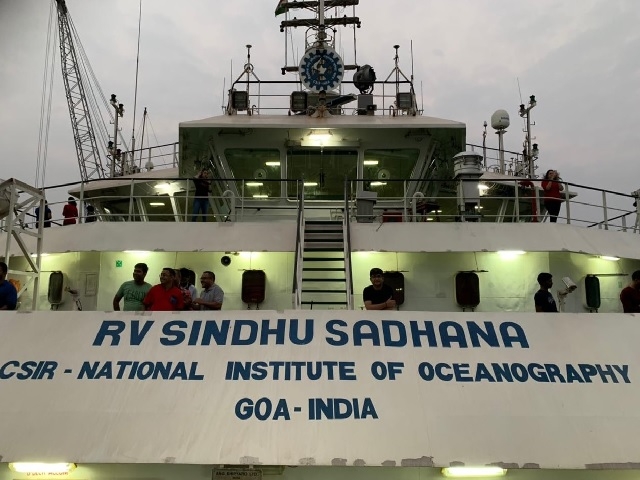NIO Launches Project to map Genetic Diversity in the Indian Ocean
Total Views |
New Delhi, March 18: To map the genetic diversity of organisms, the Council of Scientific and Industrial Research-National Institute of Oceanography (CSIR-NIO), Goa, has launched the “TraceBioMe Project”. The Expedition will be carried for 90-day.

Dr. Samir R. Damare from CSIR-NIO will lead the team of 23 participants from NIO that includes 6 women scientists. The 90 days expedition will start from Visakhapatnam Port, going to the mouth of Hooghly, Brahmaputra, and going southwards right up to 30oS latitude along 90oE. They will be covering over 9,000 nautical miles from Visakhapatnam to Goa.
The expedition will be done onboard the research vessel RV Sindhu Sadhana. According to the project info, TraceBioMe envisages extensive sampling of water, sediments, planktons, and various organisms in different areas.
The main objective of the mission is to identify and characterise the genes and proteins in the ocean to understand the cellular-level processes occurring in the microorganisms in the response. Proteomics is a large-scale study of proteins which are the key part of living organisms. The proteome is the entire set of proteins that are produced or modified by the organism or system. By studying proteomics, the researchers will be able to identify the physiological responses of the organisms under varying ocean conditions which, will help scientists to understand cellular biochemistry and the response of the ocean to climate change, nutrient stress, and pollution.
The project would be using modern state-of-the-art molecular techniques and classical techniques to map genetic diversity. In the first phase of the project, microscopic organisms will be investigated.
The data generated through this project would help in achieving the SDG 14 goals. The SDG 14 aims to conserve and sustainably use the resources of oceans, seas, and marine.
.
.